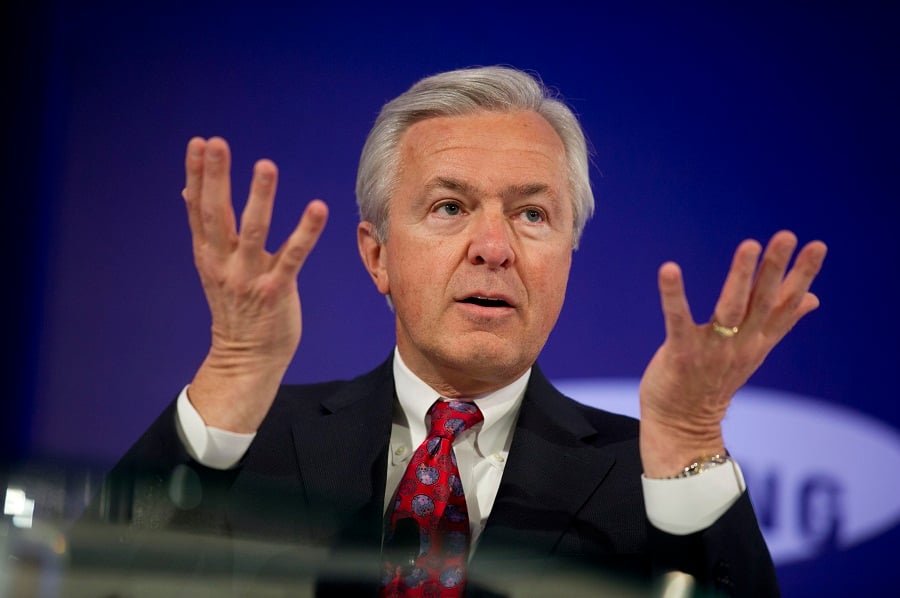

Former Wells Fargo & Co. Chief Executive John Stumpf and former top executive Carrie Tolsted were accused by the Securities and Exchange Commission of misleading shareholders about the success of the company’s community bank.
Stumpf, who retired in 2016 after the bank’s deceptions came to light, agreed to pay a $2.5 million fine to settle the allegations, the SEC said. He and Tolstedt, who didn’t reach a settlement of the claims against her, knew or should have known that statements they signed attesting to the success of the bank’s “cross-sell metric” were false or misleading, the regulator said. Tolstedt also left the bank in 2016.
“If executives speak about a key performance metric to promote their business, they must do so fully and accurately,” SEC enforcement director Stephanie Avakian said in the agency’s statement.
The SEC is seeking fines, disgorgement and a ban on serving as an officer or director of a public company against Tolstedt. Stumpf agreed to settle the agency’s claims without admitting or denying wrongdoing. His $2.5 million fine will be pooled with $500 million collected from an earlier settlement with the bank in a fund for harmed investors, the SEC said.
Wells Fargo earlier this year agreed to pay $3 billion -- including $500 million to the SEC -- to settle U.S. investigations into more than a decade of widespread consumer abuses under a deal that let the bank avoid criminal charges. The lender had previously paid more than $1 billion to U.S. regulators over consumer mistreatment, $575 million to 50 states and the District of Columbia and $480 million in an investor class-action lawsuit.

Canadian stocks are on a roll in 2025 as the country prepares to name a new Prime Minister.

Two C-level leaders reveal the new time-saving tools they've implemented and what advisors are doing with their newly freed-up hours.

The RIA led by Merrill Lynch veteran John Thiel is helping its advisors take part in the growing trend toward fee-based annuities.

Driven by robust transaction activity amid market turbulence and increased focus on billion-dollar plus targets, Echelon Partners expects another all-time high in 2025.

The looming threat of federal funding cuts to state and local governments has lawmakers weighing a levy that was phased out in 1981.
RIAs face rising regulatory pressure in 2025. Forward-looking firms are responding with embedded technology, not more paperwork.
As inheritances are set to reshape client portfolios and next-gen heirs demand digital-first experiences, firms are retooling their wealth tech stacks and succession models in real time.
